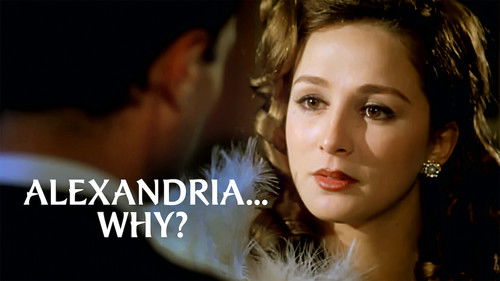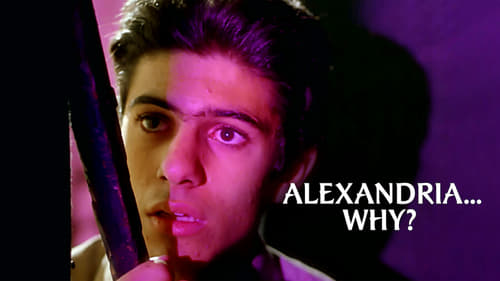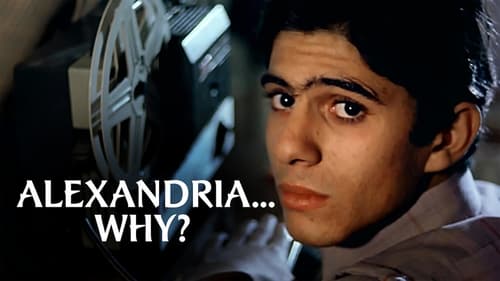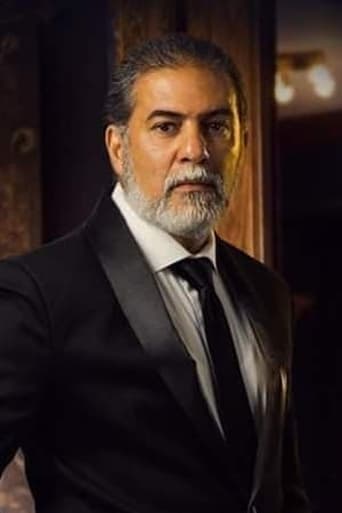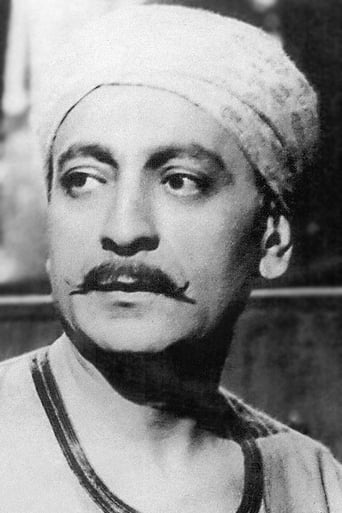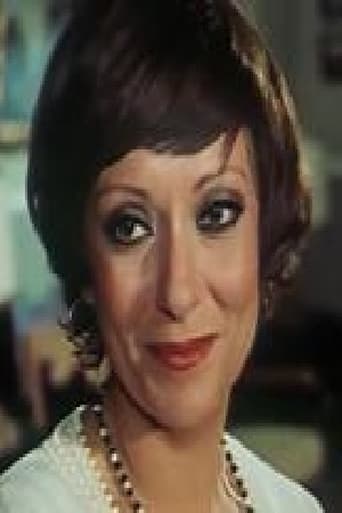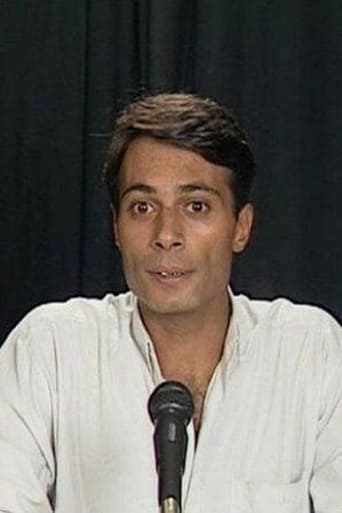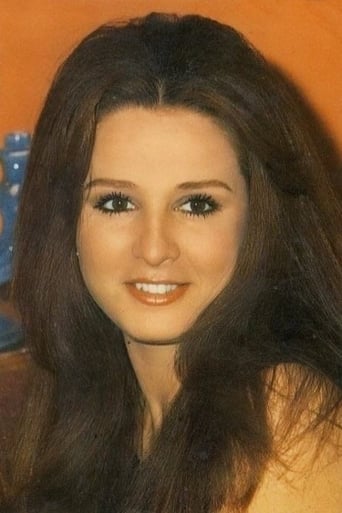Martin Teller
The first part of Youssef Chahine's semi-autobiographical trilogy concerns a young student and his frustrated dreams of being an actor in WWII-era Alexandria. While not as stunning as CAIRO STATION, it's a warm and easily relatable story with strong characters (charming lead performance by Mohsin Mohieddene) and flashes of brilliance, including Fellini-esque fantasias and clever use of stock footage and ironic music. The amateur play scenes are standouts. The problems arise when it comes to the other stories interwoven with the main plot. These cover such controversial material as an aristocrat who "buys" a drunken Allied soldier to kill him for amusement but falls in love with him instead, a group of inept Communists plotting to capture Churchill, and a Jewish girl impregnated by a Muslim boy. Each of these subplots could well be a fine film on their own, but the transitions between them are too abrupt, and rightfully pegged in other reviews as "sloppy" and "messy". It leads to a lot of confusion and the nagging feeling that Chahine is piling too much on his plate.
ametaphysicalshark
For a director who has been making movies for nearly 60 years, Youssef Chahine is still criminally unknown outside of Arabia and Europe, even in critical circles. The widest release outside of Europe for any of his films was a very limited run in the US for 1997's "Destiny", and only five or six of his films are available on Region 1 DVD. Still, dedicated cinephiles who have studied world cinema will inform you that Chahine is considered one of world cinema's great masters. He has been nominated for no less than seven awards at Cannes, five of them either for the Palme D'Or or its predecessor, the Grand Prize. Chahine won a Lifetime Achievement Award in 1997 at Cannes, as well. He has been awarded numerous other awards over the course of his illustrious career and has made some of the best regarded works in Arabic (specifically Egyptian) cinema. So why hasn't he achieved recognition across the Atlantic? His films are dense, rich, colorful, articulate, controversial, and endlessly fascinating, but they are also difficult. Few Chahine films can be watched and fully understood in one sitting, and even fewer are fully enjoyed on first viewing. Occasionally Chahine's films fall prey to his complex plots and multiple layering, and though it is still a good film, "Alexandria… Why?" is one of his most difficult and muddled films.The film, set during World War II tells multiple stories, one being Chahine's own story through the character of Yehia (played excellently by Mohsin Mohieddene), a young man in Egypt with directorial ambitions but the passion to be an actor, who frequently watches the same film repeatedly at his local cinema out of fear that he missed something the first time, performs Shakespeare, struggles with social and familial pressures, falls in love, and pursues his dream of studying acting at the Pasadena Playhouse. This is the film's main story, but subplots include a Jewish-Muslim romance where the female character is pregnant, a homosexual romance between a gay English soldier and a wealthy Arab, and a wacky, often funny plot featuring a group of communists who plan to kidnap Winston Churchill in hopes of ending the war.Though certainly not Chahine's first controversial film (his masterpiece "Cairo Station" was banned for twelve years in Egypt after its first run of screenings in 1958, and understandably so, being a film about a sexually frustrated, handicapped fetishist), "Alexandria… Why?" created quite the furor in conservative Islamic Egypt upon first release, it made bold statements on global politics, suggested (truthfully) corruption in Egypt's political structure, supported communism, and featured a homosexual relationship between a British soldier and a wealthy Arab, among other taboos. Chahine designed his script not only to tell the story of himself as a young man, but to tell his story as part of a bigger one, the story of the social and political climate in Alexandria, and the story of what he clearly believes to be incorrectly considered social taboos come to life. This is a brave and challenging film which affected me more than most films I've seen recently, all the more surprising since I thought it was a lacking effort from a director whose films are generally quite brilliant.The words 'stock footage' have negative connotations in any film fan's mind because it is so often used ineptly, but here the stock footage of WWII used brings the war to life at an appropriate distance and is edited cleverly and realistically into the film, so we never feel that we are watching a cheap production. That said, the overall production design on this fairly low-budget film is minimal, but when the film does look expensive in about three or four scenes, the money is used well. Unfortunately Chahine slips into some unfortunate mistakes like using footage from "An American in Paris" when that film was released several years after the Second World War ended. The photography is on occasion sloppy, but more than often it is precise and adds a lot to the mood of the film. There is not much of an original score used in the film as Chahine prefers to use a variety of music clips from various sources to suit whatever point the film is at. The music works perfectly with the film, but it so varied I cannot imagine it would make good listening as an album.Ultimately it is the film's occasional sloppiness that lets it down, as well as Chahine's tendency for complex plotting. This would have been perfect as a two hour film about Chahine as portrayed through the character Yehia, but his desire to comment on more than himself brings the film's quality down. Its script is excessive and often incoherent, and although there are some exceptionally shot scenes like that in which Yehia directs his first theatrical performance, the film on a whole is more remarkable for its ambition, scale, viewpoint, and characters than the end product. It is muddled and messy at times, worth watching but certainly not Chahine's best as sometimes named by critics. Chahine's later films in his autobiographical trilogy, "Egyptian Story" and "Alexandria Again and Forever" are better ways to appreciate Chahine's cinema and the character Yehia, as is his very best, most original, and bravest film "Cairo Station", which I honestly consider one of the great masterpieces of cinema.7/10
Tilly Gokbudak
I was quite impressed with "Alexandria, Why?" It is just the second film I've seen from Egyptian master Youssef Chahine, but I can already see why many scholars have praised his work tremendously. This film captures both its' time and setting quite eloquently. It is clearly inspired by Italian neo-realism and uses dubbing as many Italian films of the yesteryear have so often done. The film is perhaps an autobiographical one as it depicts a young man in World War II Egypt who wants to immigrate to California and become a filmmaker. I sense the reason this film is so rated so poorly here is because it has a production value which is very minimal in scale. You realize that many shots are shot in a studio and backdrops, particularly ones with the Meditterranean shore, are ones from stock footage. This is something which is more often in B-movies from the '60s here. But, I am sure this was due to inherent financial limitations which Chahine had too work around. If one compares this film with ones from Turkish and Indian films made in this era, it seems as though Chahine effectively utilized what he had. And, if you compare it with films from other African countries, like Senegal, well it seems like an MGM production! I imagine if George Lucas had the film's producer, these things would have been remedied but as it is, very little artistic integrity is compromised here. We are drawn into the characters' lives and we are captivated by their struggles too find love and freedom. In the end, some things are sacrificed too achieve one desire over another and thus we are left with the brutal reality of the immigrant experience. And, the result is one sterling film which suggests that if an artist truly believes in their work, they can achieve the same artistic merits as filmmakers from more developed nations.
Johnny Vinther Jensen (prometheus-dk)
One cannot help but agree with the title of this film. Why indeed? Why spend more than two hours watching this mess of a film. The only reason I can think of that the Jury gave this movie the Silver Bear at the Berlin Film Festival, is that is is different from anything else at the festival. And it is, it is a refreshing view through the eyes of a moviemaker NOT from the west. Unfortunately Youssef Chahine is not up to the task. He has severe difficulty figuring out which story he wants to tell, there are many stories in this film that would make great movies in their own right, but the constant intermingling of them, which might have worked in the hands of a more experienced director, fails in this film. For the first hour you are thrilled with the movie. One of the many stories involves an Egyptian aristocrat who picks up young English soldiers and kills them, one of them however invokes his pity and he ends up falling in love with him. For the first part of the movie this story is well told and interesting, but in the second half it becomes obvious and cliché and the good beginnings are ruined. This is one of his early movies and, although I haven't seen any others, I firmly believe that his production has improved vastly with experience, but you should definitely not see this as your first movie by him.
